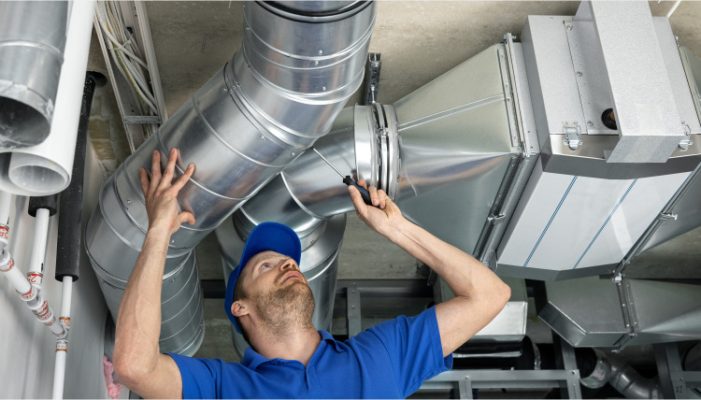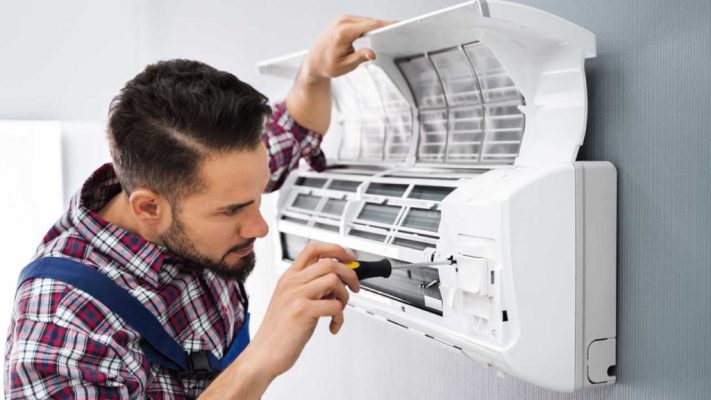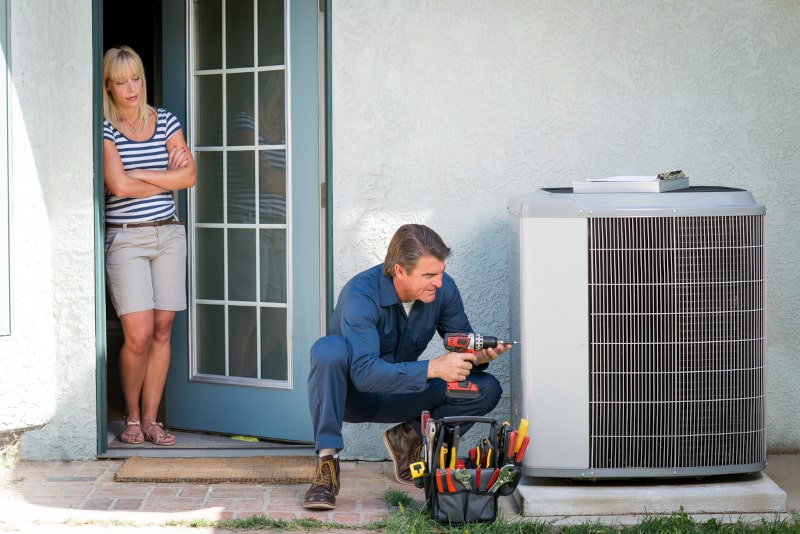Heating, ventilation, and air conditioning (HVAC) systems are vital for maintaining comfortable indoor environments year-round. These systems work tirelessly to regulate temperature, control humidity, and improve air quality in our homes and workplaces. However, like any complex machinery, HVAC systems require regular maintenance to operate efficiently and avoid unexpected breakdowns.
Skipping maintenance may seem like a way to save time or money, but it can lead to costly repairs, reduced efficiency, and even complete system failure. In this article, we’ll explore why regular HVAC maintenance is essential, how it can prevent expensive repairs, and what tasks should be performed to keep your system running smoothly.
Improved Energy Efficiency
One of the primary benefits of regular HVAC maintenance is improved energy efficiency. Over time, dust, dirt, and debris can accumulate in various parts of the HVAC system, such as the air filters, coils, and ductwork. These obstructions force the system to work harder to achieve the desired indoor temperature, leading to increased energy consumption.
Regular cleaning and maintenance ensure that your HVAC system operates at peak efficiency. Tasks such as changing air filters, cleaning condenser and evaporator coils, and inspecting ductwork for leaks can significantly reduce the strain on the system. As a result, your system uses less energy, which translates into lower utility bills.
In fact, according to the U.S. Department of Energy, well-maintained HVAC systems can reduce energy use by up to 15%. This not only helps lower your monthly expenses but also reduces your carbon footprint, making regular maintenance a win-win for both your wallet and the environment.
Prolonging the Life of the HVAC System
An HVAC system is a significant investment, and most homeowners and businesses want their system to last as long as possible. Regular maintenance plays a key role in prolonging the life of your HVAC equipment. Without proper care, components can wear down more quickly, leading to early system failure.
For instance, neglected air filters can become clogged with dirt and dust, reducing airflow and causing the system to overheat. This can lead to damage to critical components like the compressor or blower motor. Similarly, unmaintained refrigerant levels can cause the system to operate inefficiently, which may eventually damage the compressor and result in costly repairs or even replacement.
By scheduling regular maintenance, you can identify and address minor issues before they escalate into major problems, ensuring that your system runs smoothly for many years. Most HVAC systems have an average lifespan of 10 to 15 years, but with proper maintenance, they can last even longer.

Preventing Costly Repairs
One of the most compelling reasons for regular HVAC maintenance is the prevention of expensive repairs. During routine maintenance visits, technicians inspect the system for any signs of wear and tear, loose connections, or potential issues. By catching these problems early, they can be repaired before they lead to more significant damage.
For example, a loose electrical connection might not seem like a big deal at first, but if left unchecked, it could lead to a short circuit or a blown fuse, causing the entire system to malfunction. Similarly, a small refrigerant leak may go unnoticed for months, but over time it can cause the system to lose cooling capacity and strain the compressor, resulting in an expensive repair bill.
Regular maintenance helps you stay ahead of these issues, reducing the likelihood of emergency breakdowns and the high costs associated with them. A simple investment in annual maintenance can save you thousands of dollars in repairs or even the need to replace the system prematurely.
Maintaining Indoor Air Quality
HVAC systems play a crucial role in maintaining indoor air quality, as they filter out dust, allergens, and other contaminants from the air. However, if the system is not properly maintained, these filters and components can become clogged, allowing pollutants to circulate throughout your home or business.
Dirty air filters, in particular, can reduce the quality of the air you breathe, leading to health issues such as allergies, asthma, and respiratory infections. Regular maintenance ensures that air filters are changed and ducts are cleaned, which helps improve the air quality inside your space.
In addition to improving health, maintaining good indoor air quality also protects your HVAC system. When dust and debris accumulate within the system, it can lead to clogged filters, dirty coils, and restricted airflow, all of which can cause the system to overheat or malfunction. Keeping your system clean through regular maintenance not only improves the air you breathe but also reduces the risk of breakdowns.
Consistent Comfort
An HVAC system that is well-maintained provides consistent comfort throughout the year. Whether it’s ensuring that your home stays warm in the winter or cool in the summer, regular maintenance helps the system perform reliably.
If you neglect regular maintenance, your system may struggle to keep up with temperature changes, leading to inconsistent heating or cooling. For example, clogged filters or dirty coils can cause uneven airflow, resulting in some rooms being too hot while others are too cold. This not only affects your comfort but also forces the system to run longer, which increases energy consumption and wear and tear on the equipment.
Routine maintenance checks and adjustments ensure that your system is calibrated correctly and that all components are working efficiently. This provides more consistent temperatures, better humidity control, and overall improved comfort in your home or business.
Compliance with Warranty Requirements
Many HVAC manufacturers require regular maintenance as a condition of their warranty. Failing to schedule annual maintenance visits could void your warranty, leaving you responsible for the full cost of any repairs or replacements, even if the system is still relatively new.
Most warranties specify that maintenance should be performed by a licensed professional. This typically includes tasks such as checking refrigerant levels, inspecting electrical components, and cleaning critical parts of the system. By adhering to the manufacturer’s maintenance guidelines, you not only protect your investment but also ensure that any warranty claims are honored if something goes wrong.

Reducing the Risk of Emergency Breakdowns
Few things are as frustrating as an HVAC system breakdown in the middle of a heatwave or during a cold winter night. Emergency repairs are not only inconvenient, but they also tend to be more expensive due to after-hours service fees and the urgency of the situation.
Regular maintenance helps reduce the risk of these emergency breakdowns by identifying potential issues before they become critical. During a maintenance visit, a technician can detect problems like a failing blower motor, a refrigerant leak, or an issue with the thermostat and fix them before they result in a system failure.
By staying on top of maintenance, you can minimize the chances of being caught off guard by a sudden breakdown, ensuring your comfort and avoiding the stress and cost of emergency repairs.
What Does Regular HVAC Maintenance Include?
Regular HVAC maintenance involves a combination of preventive tasks that keep the system clean, well-lubricated, and functioning properly. Here are some of the key tasks typically performed during a maintenance visit:
- Changing air filters: Clean filters improve airflow and reduce the strain on the system.
- Inspecting and cleaning coils: Dirty coils reduce cooling efficiency, so cleaning them ensures optimal performance.
- Checking refrigerant levels: Low refrigerant can lead to poor cooling and potential damage to the compressor.
- Inspecting ductwork: Technicians look for leaks or blockages that could reduce airflow.
- Testing thermostat accuracy: Ensures that the thermostat is calibrated and controlling the system properly.
- Lubricating moving parts: Reduces friction and wear on motors and other components.
- Inspecting electrical connections: Loose or damaged connections can lead to system malfunctions.
- Clearing condensate drains: Prevents water damage and mold growth by ensuring proper drainage.
These routine tasks not only improve the efficiency and lifespan of your HVAC system but also help you avoid more serious issues that require costly repairs.
Maintaining your HVAC system regularly is one of the most effective ways to prevent expensive repairs and ensure that your system operates efficiently year-round. By investing in routine maintenance, you’ll enjoy lower energy bills, better indoor air quality, and consistent comfort, all while prolonging the life of your HVAC equipment.

Please read more articles, this is the content you need:
How to Get the Best Warranty on Automotive Repairs
When it comes to automotive repairs, securing a solid warranty can save you a significant [...]
Sep
How to Prove Negligence in Australian Car Accident Cases
Proving negligence is crucial in Australian car accident cases to secure compensation for damages and [...]
Jul
How to Find Affordable HVAC Repair Services Near You
When your heating, ventilation, and air conditioning (HVAC) system breaks down, it can cause significant [...]
Sep
Energy-Efficient Appliance Repairs: What You Should Consider
In 2024, energy efficiency is more important than ever for homeowners looking to reduce their [...]
Sep